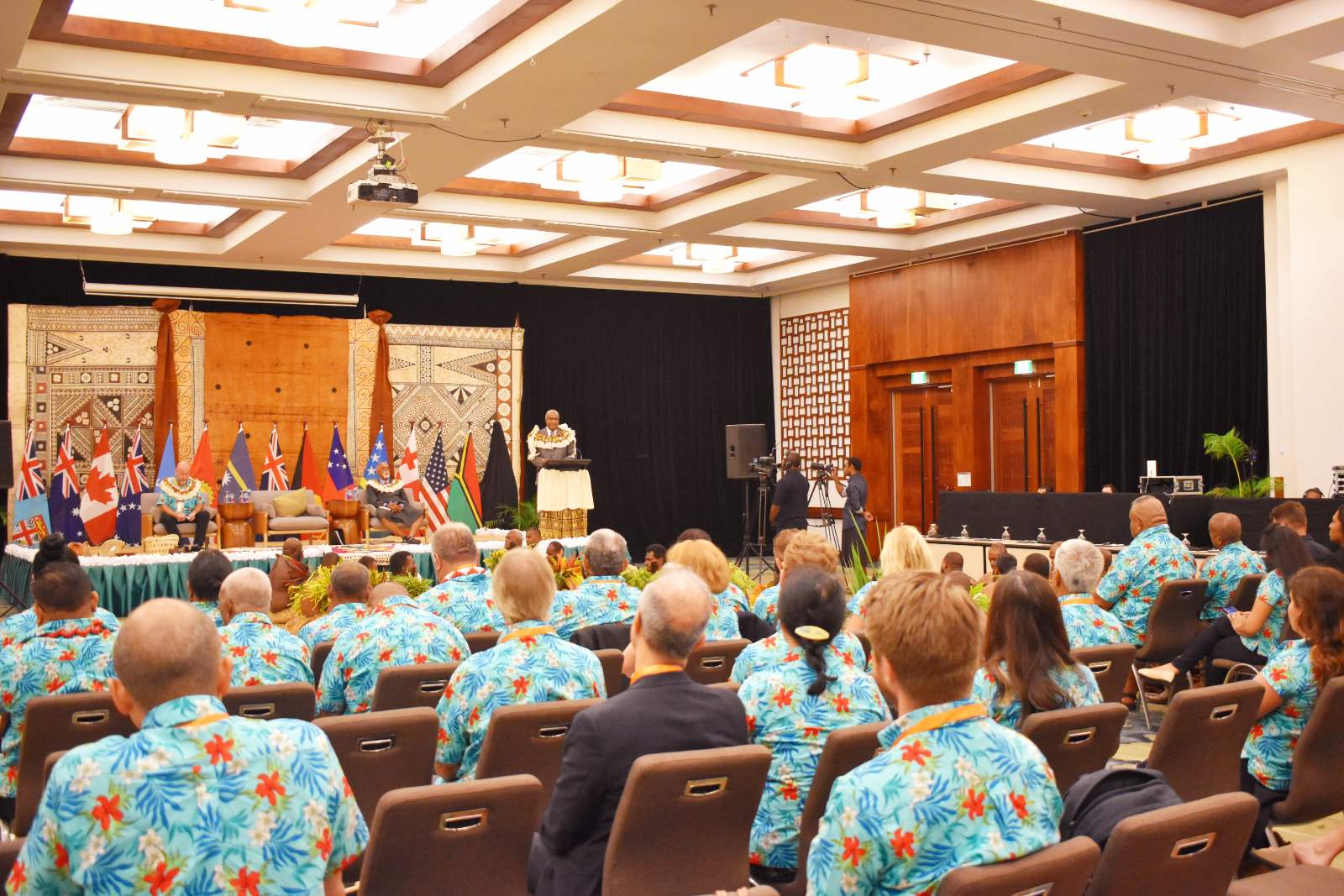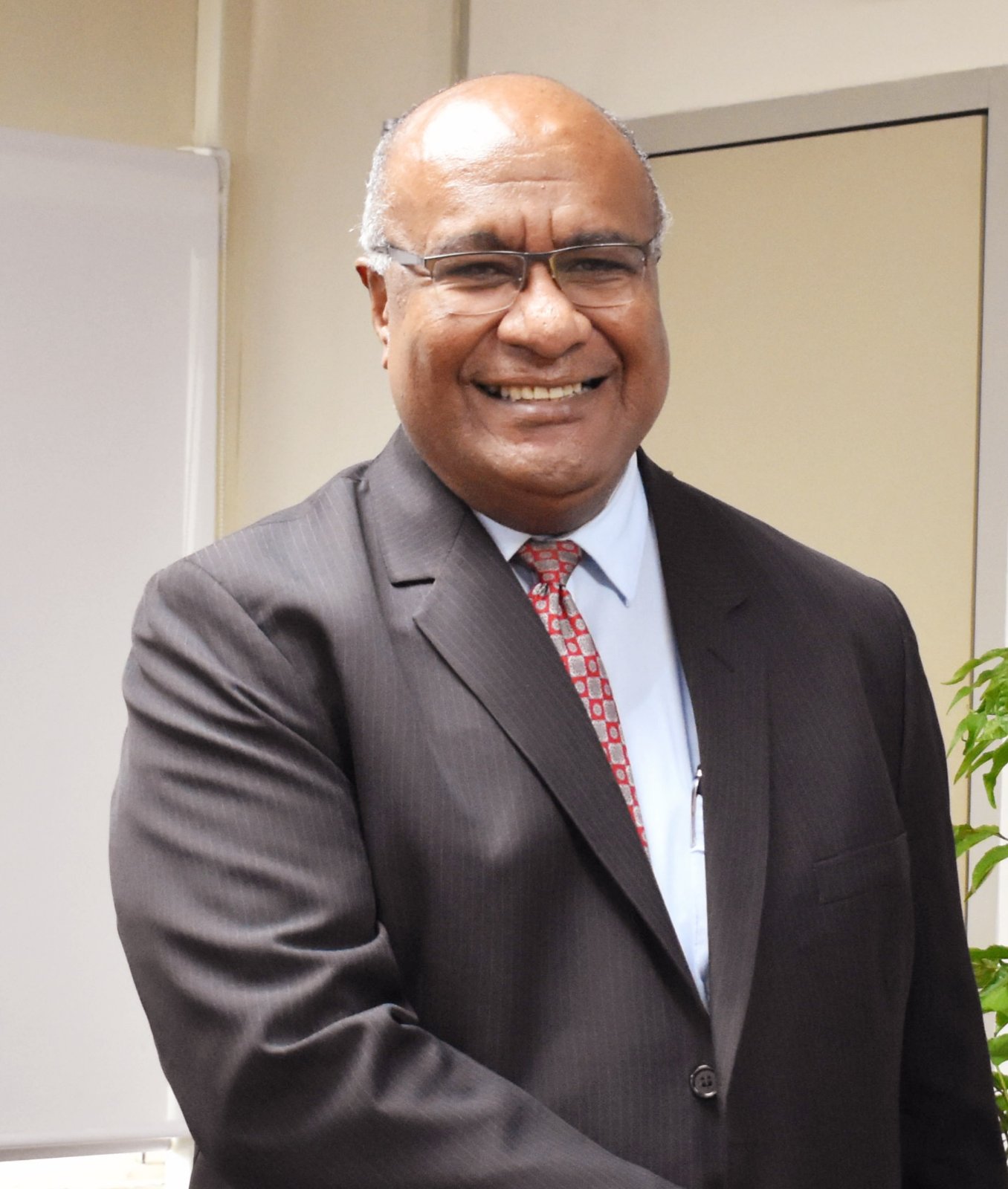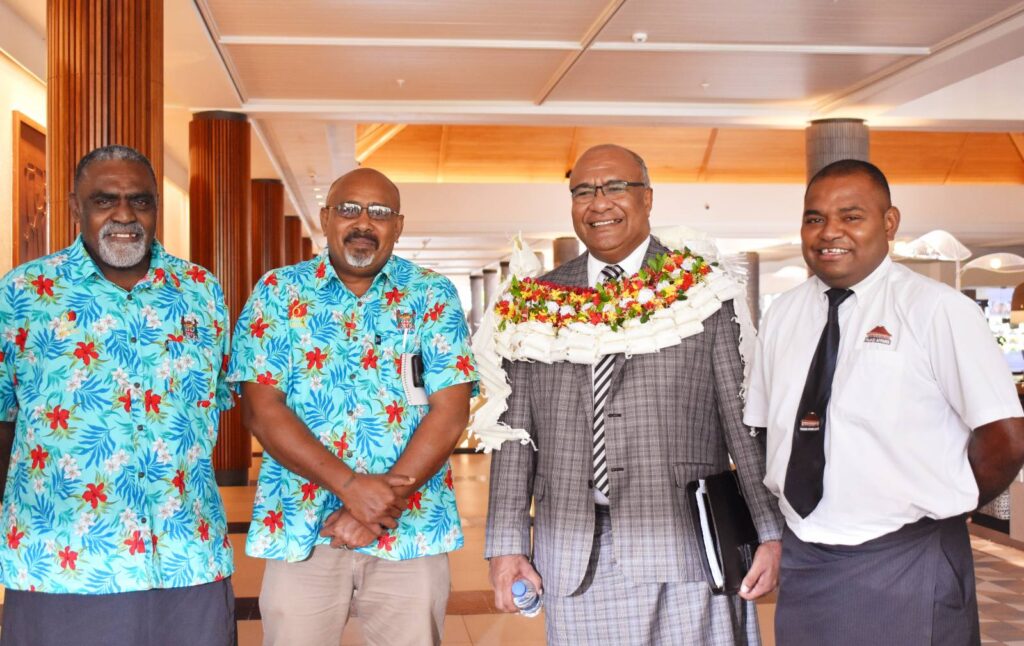Your Excellencies and Honourable Ministers,
Distinguished Delegates,
Ladies and Gentlemen
Ni sa Bula Vinaka and very good morning to you all.
On behalf of the Honourable Prime Minister and the Fiji Government, it gives me great pleasure to welcome you all to Fiji for the 16th Session of the Codex Committee for North America and South-West Pacific (CCNASWP) (pronunciation: SEE SEE-NA-SWAP).
I hope you get an opportunity to experience our warm hospitality and the rich and diverse culture of Fiji.
Ladies and Gentlemen,
Codex Committee for North America and South-West Pacific was established 34 years ago and remains a high priority for the region to achieve food safety. As a matter of fact, food safety standards, which serve as reference points for international trade policy, are of great and direct significance to everybody. The primary purpose of Codex standards is to protect consumers’ health by ensuring the safety and nutritional quality of food products traded worldwide. In doing so it prevents the spread of disease between countries.
Ladies and Gentlemen,
Food-related diseases can have serious consequences for both human and animal health. They can also have a significant economic impact, as outbreaks of disease can lead to trade bans, loss of revenue and damage to a country’s reputation.
It has been found that an estimated 600 million – almost 1 in 10 people in the world – fall ill after eating contaminated food and 420,000 die every year. Children under 5 years of age carry 40% of the foodborne disease burden, with 125,000 deaths every year. Furthermore, USD110 billion is lost each year in productivity and medical expenses resulting from unsafe food in low- and middle-income countries.
Today’s rapid changes in trade, travel and commerce call for an international standard-setting system that is able to respond more quickly to new situations.
Since the trade, nutrition and food safety elements are so closely connected, closer collaboration between different sectors and interactions between the Codex and other global players will be essential.
Ladies and Gentlemen,
The importance of our work for the region is evidently large. As we gather here today to mark the 16th Session of the CCNASWP, it is important to reflect on our trajectory, consider how the Committee can address challenges, and engage stakeholders for their valuable inputs on food safety issues.
In addition, it is crucial that we remain aware of the latest developments in the field of animal welfare and food safety. This will enable us to anticipate and respond to any changes that may affect our region.
Ladies and Gentlemen,
The Pacific region has made significant progress in implementing CODEX guidelines. One example of this progress is the establishment of a regional CODEX committee, which serves as a platform for sharing knowledge and best practices among countries in the Pacific region. This committee also works closely with the World Organisation for Animal Health (OIE) to ensure that CODEX guidelines are being properly implemented and to address any challenges that may arise.
The Pacific region has also taken steps to address trade issues in relation to kava, by implementing CODEX guidelines for the international trade of Kava. Kava is a traditional beverage and a valuable export crop for many Pacific Island countries.
Fiji has also adopted the “Fiji Kava Standard” based on CODEX to ensure the welfare of Kava plants during transport and prevent the spread of disease.
Ladies and Gentlemen,
The Codex work in the region would not have progressed without the support and collaboration of our regional members and organizations experts such as the UN WHO (World Health Organization) and UN FAO (Food and Agriculture Organization).
Therefore, I would like to acknowledge all the experts and members of the region for their tireless efforts in laying the foundations for ensuring food safety globally.
Ladies and Gentlemen,
I would also like to encourage all of you to share your experiences and best practices with one another in order to improve our overall understanding of the issues at hand.
I am confident that by working together and sharing our knowledge and expertise, we will be able to make a real difference in food safety standards, and achieve more efficient, inclusive, resilient, and sustainable food systems.
On that note, it is my pleasure to declare this meeting open. I look forward to a successful meeting.
I hope that your stay in Fiji will be both productive and enjoyable.
Vinaka Vakalevu. Thank you.




